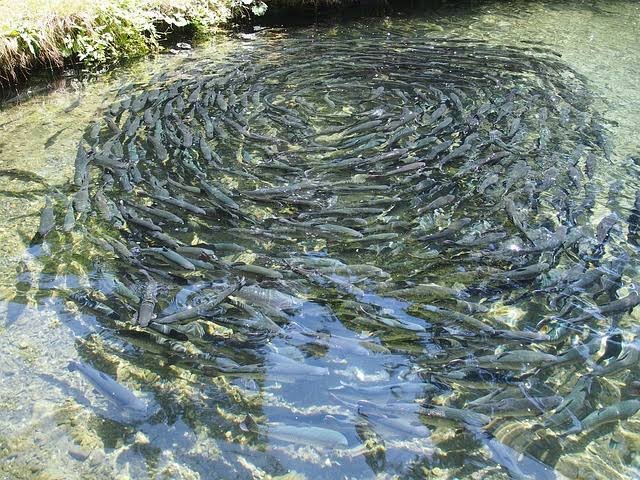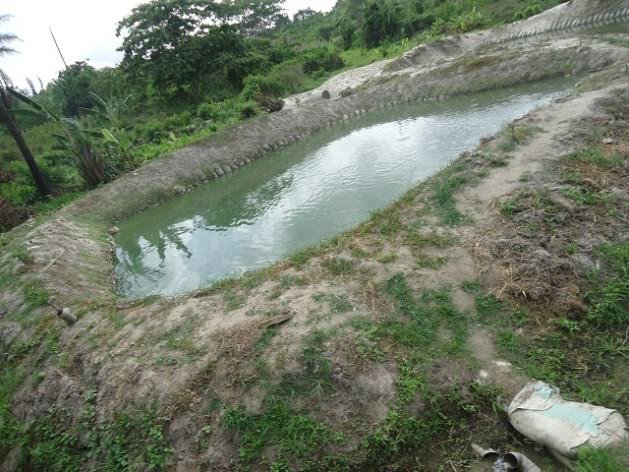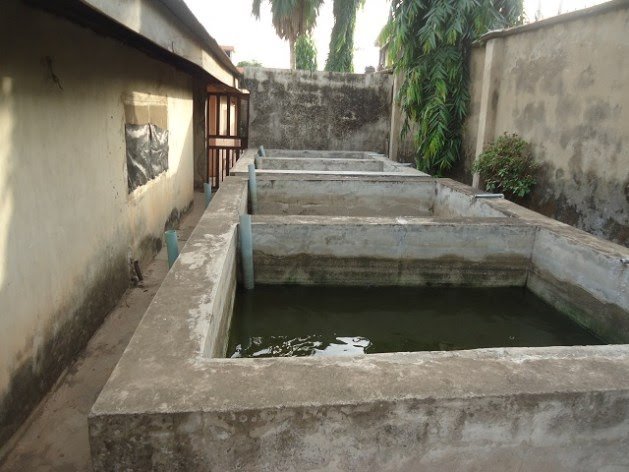
Fish farming is one of the major sectors of livestock farming worldwide. It is also a vast area itself as there are numerous forms and types of fish farming which ranges from fresh water, salt water, earthen ponds, concrete ponds amongst others. There are so many information about fish farming but few are detailed enough to really assist an aspiring fish farmer. I will endeavour to make this article to be as detailed as possible, comments from experienced fish farmers will be greatly appreciated.
Gone are the days when fishes are only harvested in the local Rivers and ponds through try and errors. Today, technology has enormously influenced the modern fish farming and has made it possible to grow fish in farms am control the output.
Cutting the chase, let's start with points to consider in starting a profitable fish farm.
1. Beginning with a small budget:
Beginning with asmall budget could help in this two ways:
a. It will help to determine if the fish business is good for you or not: this is crucial because it's unwise to enter a business without thorough research, planning and budgeting first as in most start-ups.
b. It will help u to gain confidence and open your eyes to the realities of the marketplace.
Another challenge fish marketers have faced is marketing. Yes there are readily available markets but getting into the market and making a lot of profit requires techniques and connections which are not always available (will get to this in the course of this article).
2. Take your time
If you want to be a successful fish farmer patience is a virtue u need to cultivate. For the record if you lack patience please do not pursue a career in the fish farming.
3. Don't seek profit immediately.
Profit will not be realised immediately as is the case in most business. It might take a year or two before you begin to reap the benefits of your investment.
4. Be prepared for in long hours.
Fish farming ,is without a doubt,a simple endeavour, but it's necessities comment to hard labor. Especially in the area of networking and finding consumers for your fishes you will need to be creative.
Arrears that will need special attention or a professional touch in a fish farm start-up are;
Pond, fish species, water/drainage facilities, feed, knowledge and experience.
Pond
Based on your budget and investment portfolio, you can choose a concrete pond, an earthen pond or tarpaulin for your water storage needs. A fish expert will be required for the construction of both earthen and concrete ponds.
Each type of pond have it advantage and disadvantage. Researches show that an Earthen pond increases the growth of fishes due to the fact that the fishes will inevitably feed on natural organisms in the earthen pond, These organisms can't effectively grow in a concrete or tarpaulin pond.
Tarpaulin tanks are inexpensive and readily available in the market today. If you decide to use a tarpaulin tank, you must make certain that the water control structure is properly installed and functioning.

An earthen pond.

A concrete pond
Species of fish
Of all the most widely cultured fish spices in Africa, catfish ( Clarias gariepinus) and tilapia (Oreochromis niloticus), are the two most common spices. Before selecting a spices to culture, conduct market research to determine whether or not people in your environment will purchase the fish.
It is also necessary to determine potential competitors as well as potential buyers, since this will aid you in developing a foundation for your market plan.
Once you've decide on the spices based on market research, you can now move to the next step, which is to purchase juvenile fish from any reputable fish farm or through the service of a fish farming consulting firm.
Water/drainage system installations
The fact that fish lives under water means that, in other to produce high-quality stock after four months or longer depending on your culture cycle, you must have a good water drainage system for your fish pond.
Feed.
The most significant difficulty facing an African farmer is the availability of feed. The majority of the commercial feed we have is quite expensive, and the return we have on investment after each breading cycle is minimal.
So in addition to commercial feed, you will need to consider how you need to produce your own feed. As you proceed in your fish farming endeavours, you want to reap the greatest possible benefit from your endeavors, therefore compounding your own feed will go a long way In reducing cost of buying readily manufactured feeds.
Expertise and/or practical experience.
Obtaining the necessary experience either via research or through refresher classes will be beneficial. I usually recommend to new fish farmers that seek the guidance of an experienced fish farmer or an experienced fish scientist as a consultant. Any of them has the potential of becoming great asset to the farm.
As I round up, the last stages of setting up a fish farm includes filling the pond with fresh ( non chlorinated ) water to the desired level, stocking the juvenile, and managing the pond environment. The need for regular changing of the pond water can't be over emphasised. When a the water is not changed regularly, this causes erratic behaviour amongst the fishes which will inevitably lead to reduced profits.
That will be all for now, thanks for taking your time to check out my blog. I'd appreciate your support and comments or opinions as this will help us all to know more.
One love from @ponmile22222

